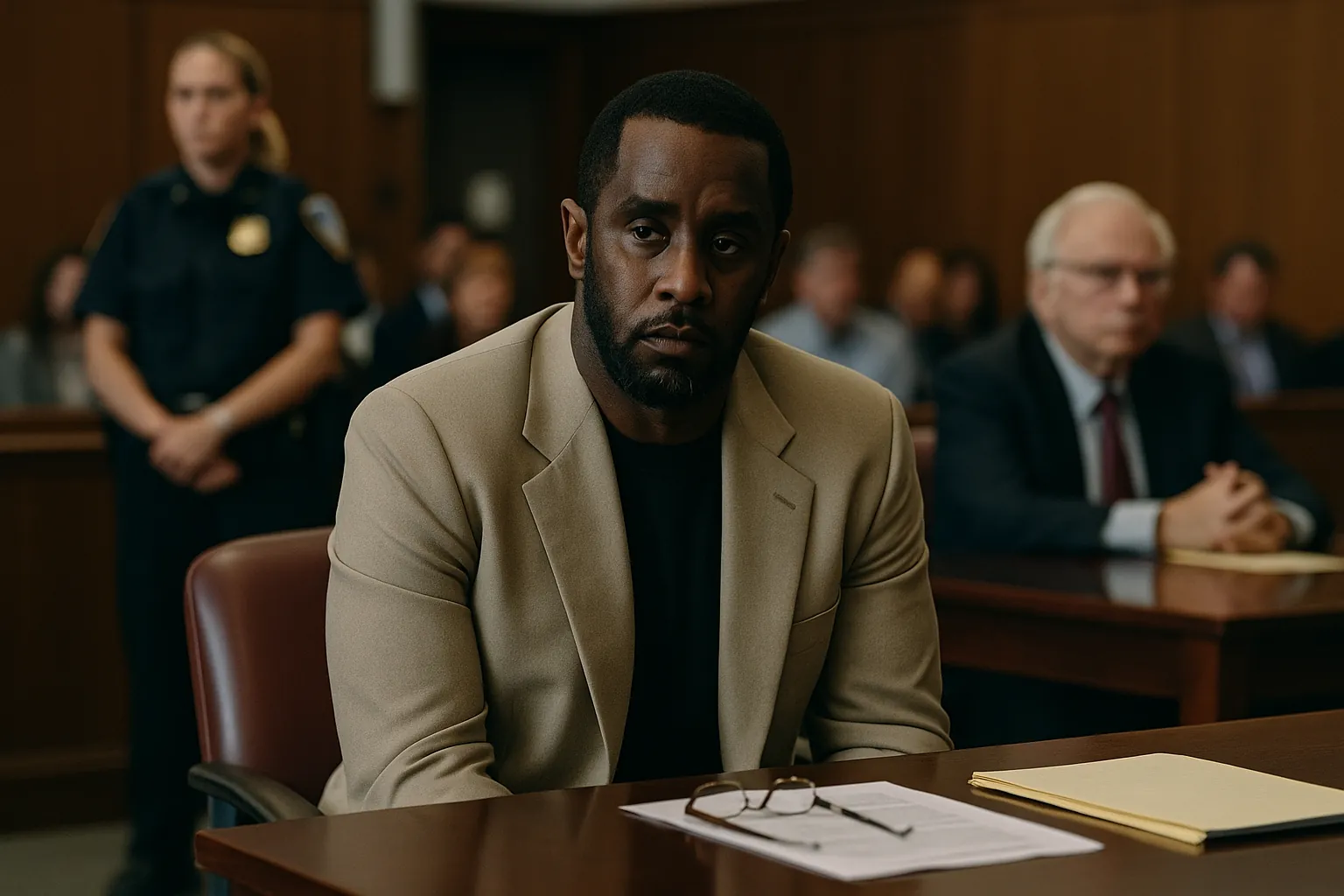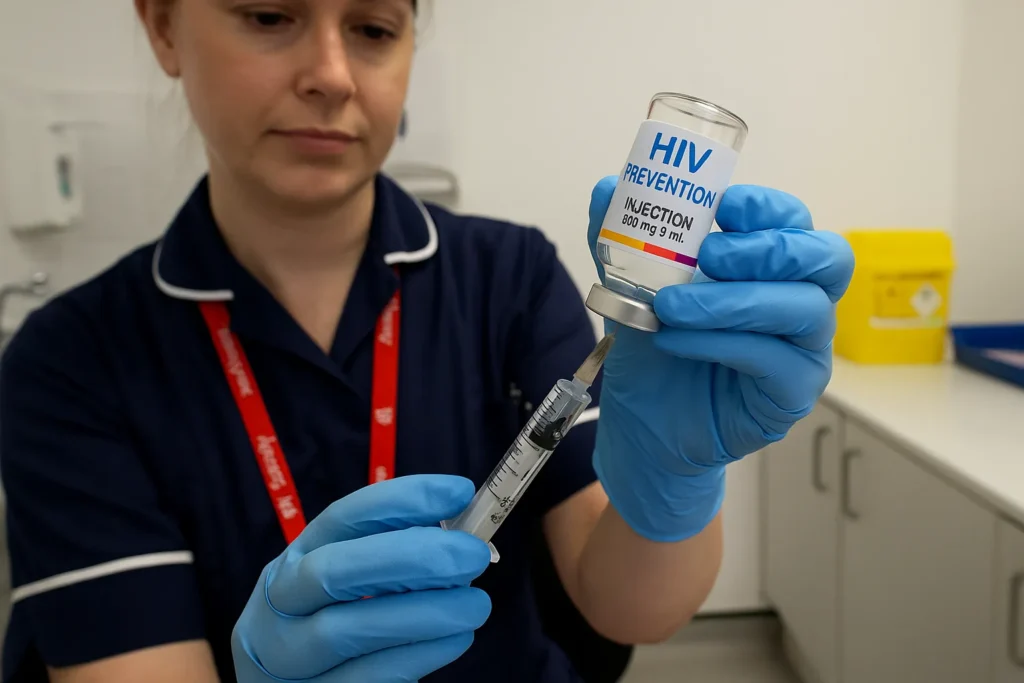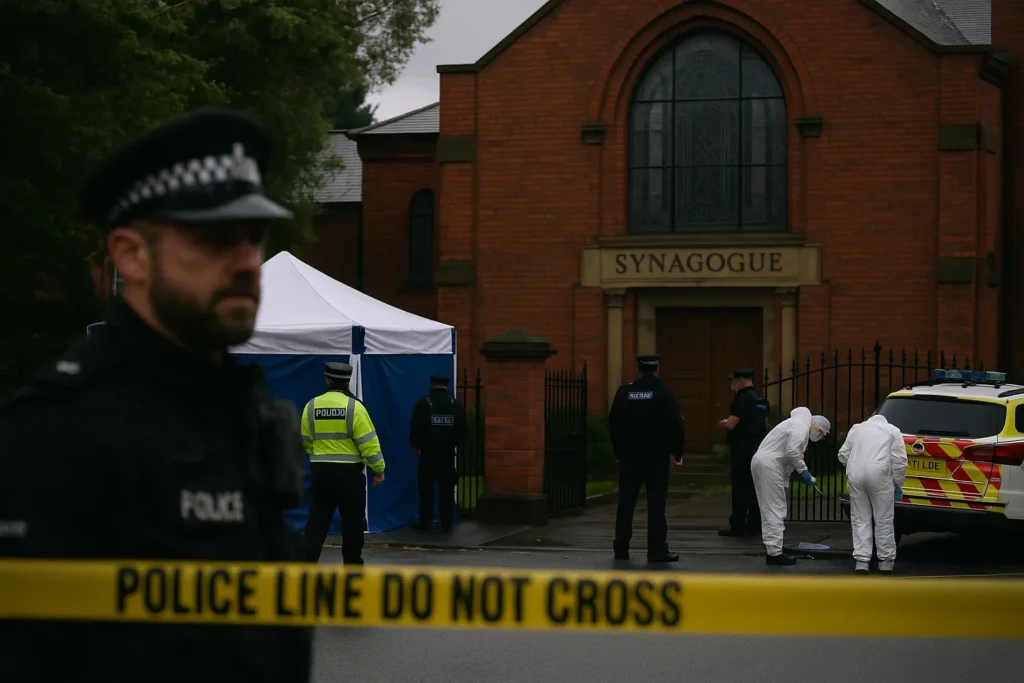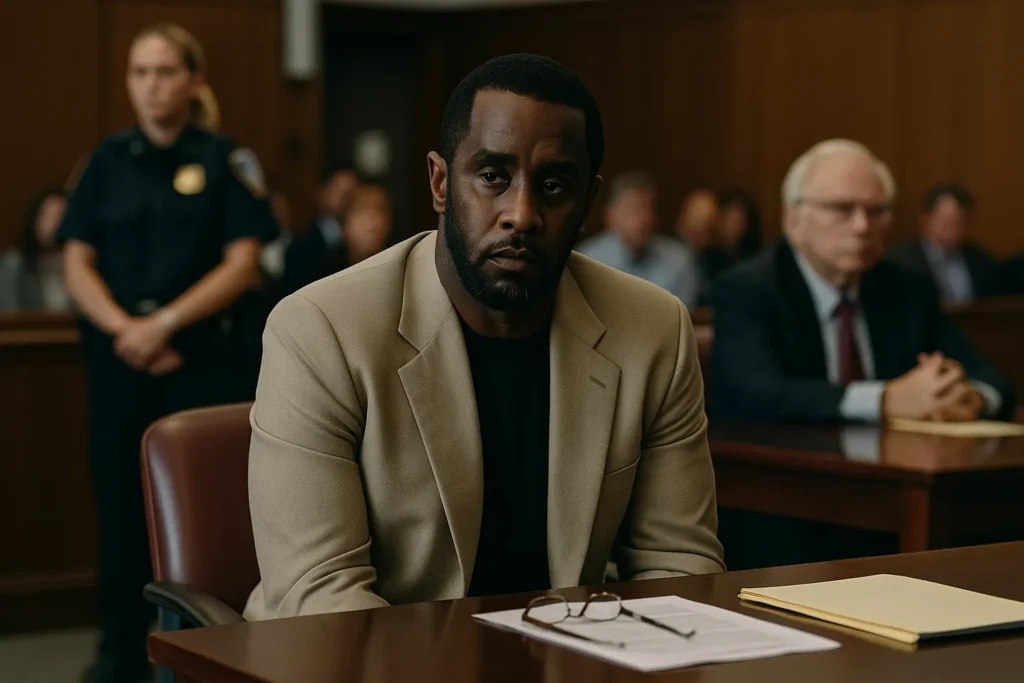For decades, Sean “P. Diddy” Combs symbolized success, swagger, and control. Now, the man who once embodied hip-hop’s entrepreneurial power sits behind bars. The P. Diddy prison sentence — 50 months for trafficking women for prostitution — isn’t just another celebrity scandal. It’s a reckoning. The fall of a man long shielded by fame, money, and silence.
Context: the collapse of a music empire
For years, P. Diddy ruled the culture. From Bad Boy Records to global fashion and vodka endorsements, Combs turned his image into an empire. But in court, that empire cracked. The federal court in Manhattan heard two months of testimony from victims describing manipulation, coercion, and psychological terror.
Judge Arun Subramanian’s words cut through the myth: “You abused them physically, emotionally, and psychologically. You had the power and the resources to continue this until you got caught.”
The jury found him guilty. Prosecutors wanted 11 years; the defense begged for 14 months. The court chose 50. Even the half-million-dollar fine feels symbolic — less a punishment, more a reminder that no amount of money can buy redemption.
Oppositional Argument: celebrity justice and selective outrage
Mainstream media framed the P. Diddy prison sentence as “justice served.” But the question remains: why did it take decades? Why did a man known for violent outbursts, abuse rumors, and lawsuits remain untouched until now?
Hollywood and the music industry have long protected predators — as long as profits rolled in. Combs was no exception. Insiders claim his label’s culture of silence was legendary: NDAs, hush money, and intimidation were the price of access. The same platforms that now moralize about justice once glorified him.
This isn’t a story about redemption. It’s about a system that forgives monsters when they make money.
Analytical Breakdown: power, denial, and cultural complicity
The Combs case exposes the machinery behind hip-hop’s elite. It’s not just personal corruption — it’s institutional. From record executives to award shows, the industry profited from his brand while ignoring the trail of damage.
The P. Diddy prison sentence reflects a broader cultural paradox. Society adores “self-made” men who conquer adversity but ignores what — or who — they crush along the way. Combs built his empire on the narrative of Black excellence, yet turned that platform into a weapon against the vulnerable.
Even now, his supporters frame him as a “fallen icon,” a “product of excess.” But excess doesn’t explain abuse. Entitlement does. The kind cultivated by decades of unchecked adoration.
Counterarguments
Some argue Diddy’s sentencing was politically charged — a spectacle amid America’s obsession with cancel culture. Others call it too lenient, given the gravity of the crimes. Both are right and wrong. The truth lies between hypocrisy and power. His downfall isn’t justice finally working; it’s justice catching up when the empire no longer pays dividends.
Human Perspective: the victims and the silence
Behind every statistic are the women whose lives he destroyed. Their testimonies — physical violence, isolation, humiliation — reveal not just cruelty but strategy. They weren’t random victims; they were controlled assets in a luxury ecosystem.
When Diddy pleaded for “one more chance,” he wasn’t quoting his song. He was bargaining for his myth. “I got lost in excess,” he said. But the women never had the luxury of getting lost — they were trapped.
Journalists at NBC and New York Post reported his emotional speech, yet even then, most coverage centered on his career, not his victims. That imbalance mirrors the entertainment industry itself.
The unspoken truth: hip-hop’s patriarchs rarely fall alone
If history is consistent, the P. Diddy prison sentence won’t end with Combs. Expect more revelations, lawsuits, and quiet panic inside record labels. Former associates already distance themselves; others prepare statements of “shock.” But insiders whisper that this has been an open secret for years — just another chapter of the culture’s tolerated toxicity.
The public may finally see a predator punished, but the system that built him still thrives: PR agencies rebranding abusers, streaming platforms monetizing their catalogs, and fans willing to forget in exchange for nostalgia.
Conclusion: America’s culture of impunity meets its mirror
P. Diddy’s four-year sentence is neither victory nor tragedy — it’s exposure. A mirror held to a culture where fame buys immunity until it doesn’t. His tears in court were real, but so were decades of pain he caused.
In the end, the story of P. Diddy’s prison sentence isn’t about a musician losing freedom. It’s about a society that confuses charisma with character — and forgives until the cameras roll in court.
External Links
184 views






